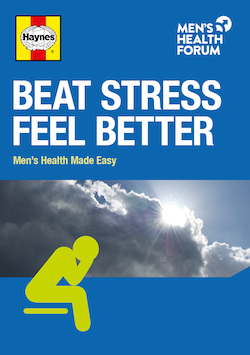Mindfulness

Ever get out of the car and not remember the journey? This ‘autopilot’ can drag mood down, especially when we have a lot on our minds.
Get off autopilot by noticing what’s going on in the moment you’re living in. Look up. Listen. Observe. If you can truly be in moment, you can't be thinking about the unchangeable past or the unknowable future.
What is mindfulness?
If you feel like you’re always in a headlong rush, Mindfulness or Mindfulness-based Cognitive Therapy (which combines meditation techniques with CBT or cognitive-behavioural therapy) can teach you to recognise when your autopilot is dragging you into unhelpful thoughts and to return your attention to the moment, often using the breath as an ‘anchor’.
Sounds weird? Possibly - but there’s a growing body of evidence that it works.
As well as increasing your everyday mindfulness, there are specific mindfulness practices you can try to bring you back to the moment.
Everyday mindfulness?
This is about being aware of what you're doing when you're doing it. For example, you could dress mindfully in the morning meaning that you're thinking about what you're putting on rather than thinking about the day ahead or the night before.
It’s not easy to do it for long but the process itself - however tough you find it - is calming and will help you get things in perspective.
The NHS's top tips for everyday mindfulness are:
- Notice the everyday: the food you eat, the wind against your skin, clouds in the sky, birds in the trees - you get the idea
- Keep it regular: choose a mindful time - the walk you take to work or at lunch-time, for example
- Try something new: it's easier to be mindful around the unfamiliar (even if it's only slightly unfamiliar like a different seat in a meeting)
- Watch your thoughts: be aware of your mind wandering, notice it's happened and what the distracting thought is about. No big deal. Go back to being in the mindful moment.
- Name thoughts and feelings: does thinking about X make you feel Y? Name that feeling and you'll get better at recognising it.
What about mindfulness practices?
There are many different mindfulness practices - some are minutes long, some last up to an hour. They involve sitting (or lying or standing) and paying attention to sounds, thoughts, feelings or sensations in the body. Perhaps 'scanning' the body for these. Some practices can be 'guided' either by a teacher in a class or by listening to audio. Others you can do by yourself.
The thing they usually have in common is a focus on your awarenesss of your breathing and on bringing your attention back to this whenever the mind starts to wander.
Mindfulness has evolved out of traditional Eastern meditation practices. You'll also find the idea in yoga and tai-chi and both can also help with developing awareness of your breathing and thus beating stress.
Anyone can do mindfulness - there are books (the best known is probably Mindfulness by Mark Williams and Danny Penman) and local groups. Ask your GP about it. Your GP may be able to refer you.
- Mental Health Foundation: Be Mindful
- NHS page on Mindfulness
We don't currently post comments online but are always keen to hear your feedback
| In addition to the sources referenced below, this content is based on the Men's Health Forum's man manual Beat Stress, Feel Better which was prepared in line with the NHS England Information Standard of which the MHF is a member. Follow the links to buy copies. Main image on this page: Autopilot by Elliot P licensed under CC BY 2.0 |
Date published
27/07/18
Date of last review
18/05/20
Date of next review
18/05/23
References
|
The Men’s Health Forum need your support It’s tough for men to ask for help but if you don’t ask when you need it, things generally only get worse. So we’re asking. In the UK, one man in five dies before the age of 65. If we had health policies and services that better reflected the needs of the whole population, it might not be like that. But it is. Policies and services and indeed men have been like this for a long time and they don’t change overnight just because we want them to. It’s true that the UK’s men don’t have it bad compared to some other groups. We’re not asking you to ‘feel sorry’ for men or put them first. We’re talking here about something more complicated, something that falls outside the traditional charity fund-raising model of ‘doing something for those less fortunate than ourselves’. That model raises money but it seldom changes much. We’re talking about changing the way we look at the world. There is nothing inevitable about premature male death. Services accessible to all, a population better informed. These would benefit everyone - rich and poor, young and old, male and female - and that’s what we’re campaigning for. We’re not asking you to look at images of pity, we’re just asking you to look around at the society you live in, at the men you know and at the families with sons, fathers and grandads missing. Here’s our fund-raising page - please chip in if you can. |



